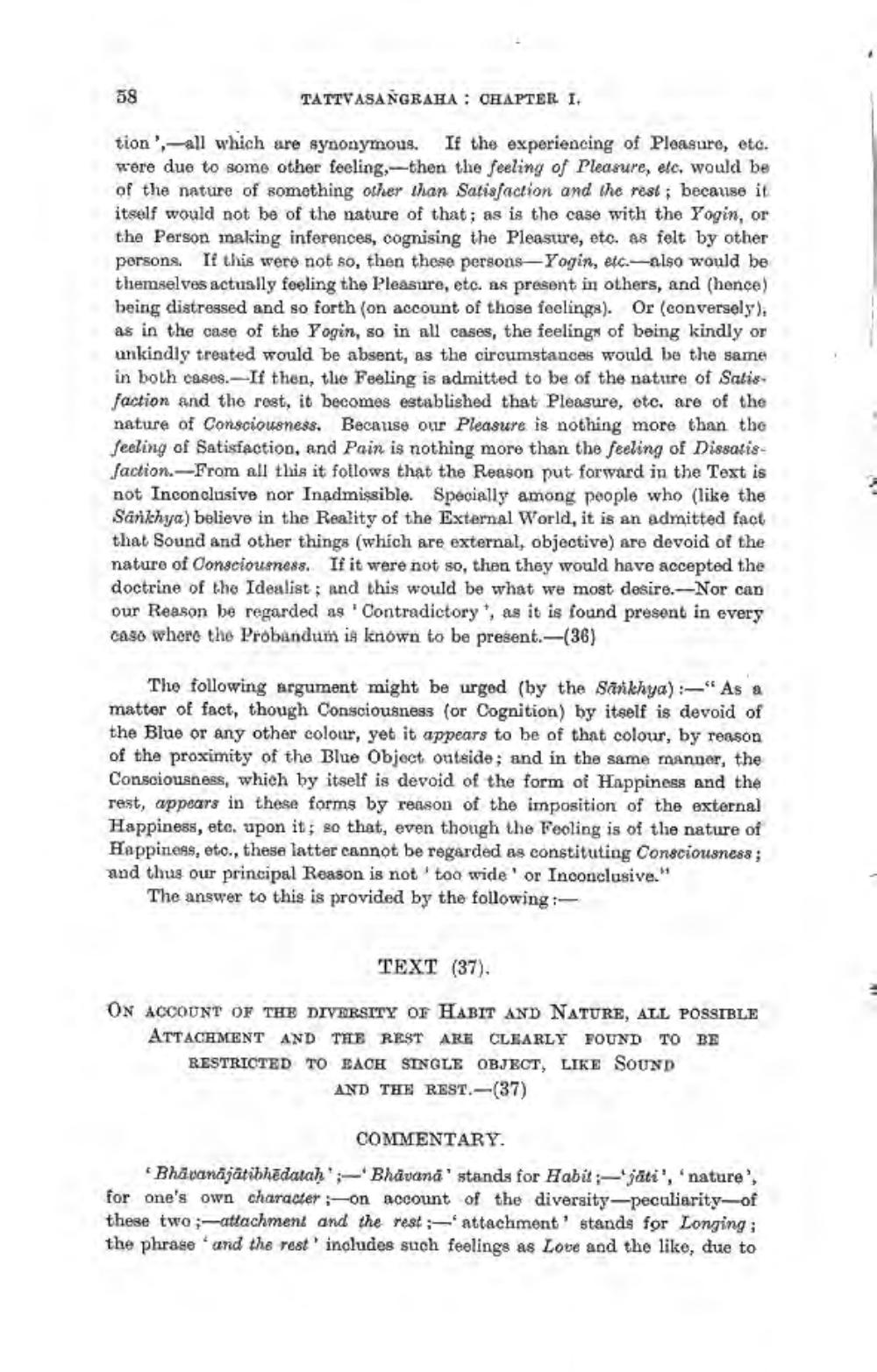________________
58
TATTVASANGRAHA : CHAPTER I.
tion',-all which are synonymous. If the experiencing of Pleasure, etc. were due to some other feeling,--then the feeling of Pleasure, ele, would be of the nature of something other than Satisfaction and the rest, because it itself would not be of the nature of that; as is the case with the Yogin, or the Person making inferences, cognising the Pleasure, etc. as felt by other persons. If this were not so, then these persons-Yogin, etc.-also would be themselves actually feeling the Pleasure, etc. as present in others, and (hence) being distressed and so forth (on account of those feelings). Or (conversely), as in the case of the Yogin, so in all cases, the feelings of being kindly or ukindly treated would be absent, as the circumstances would be the same in both cases.-If then, tle Feeling is admitted to be of the nature of Satis faction and the rest, it becomes established that Pleasure, etc. are of the nature of Consciousness. Because our Pleasure is nothing more than the feeling of Satisfaction, and Pain is nothing more than the feeling of Dissasisfaction. From all this it follows that the Reason put forward in the Text is not Inconclusive nor Inadmissible. Specially among people who (like the Sankhya) believe in the Reality of the External World, it is an admitted fact that Sound and other things (which are external, objective) are devoid of the nature of Consciousness. If it were not so, then they would have accepted the doctrine of the Idealist; and this would be what we most desire.--Nor can our Reason be regarded as 'Contradictory, as it is found present in every caso where the Probandum is known to be present.—(36)
The following argument might be urged (by the Sankhya) :-"As a matter of fact, though Consciousness (or Cognition) by itself is devoid of the Blue or any other colour, yet it appears to be of that colour, by reason of the proximity of the Blue Object ontside, and in the same manner, the Consciousness, which by itself is devoid of the form of Happiness and the rest, appears in these forms by reason of the imposition of the external Happiness, etc. upon it; so that, even though the Feoling is of the nature of Happiness, etc., these latter cannot be regarded as constituting Consciousness; and thus our principal Reason is not too wide' or Inconclusive."
The answer to this is provided by the following:
TEXT (37).
ON ACCOUNT OF THE DIVERSITY OF HABIT AND NATURE, ALL POSSIBLE ATTACHMENT AND THE REST ARE CLEARLY FOUND TO BE RESTRICTED TO EACH SINGLE OBJECT, LIKE SOUND
AND THE REST.-(37)
COMMENTARY. Bhavanäjätibhēdatah' ;- Bhavana' stands for Habit: jati', 'nature', for one's own character on account of the diversity-peculiarity-of these two;-attachment and the rest :-'attachment' stands for Longing; the phrase "and the rest includes such feelings as Love and the like, due to




